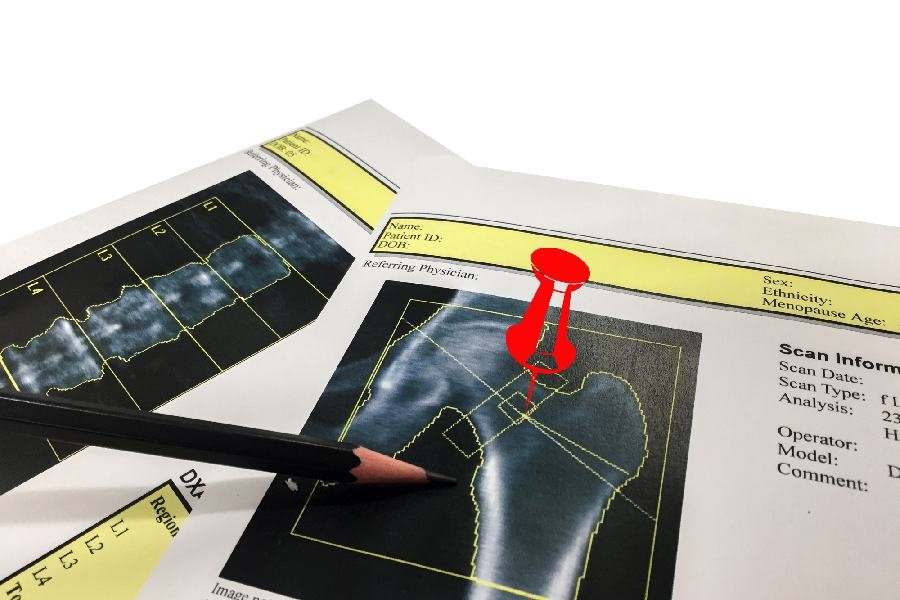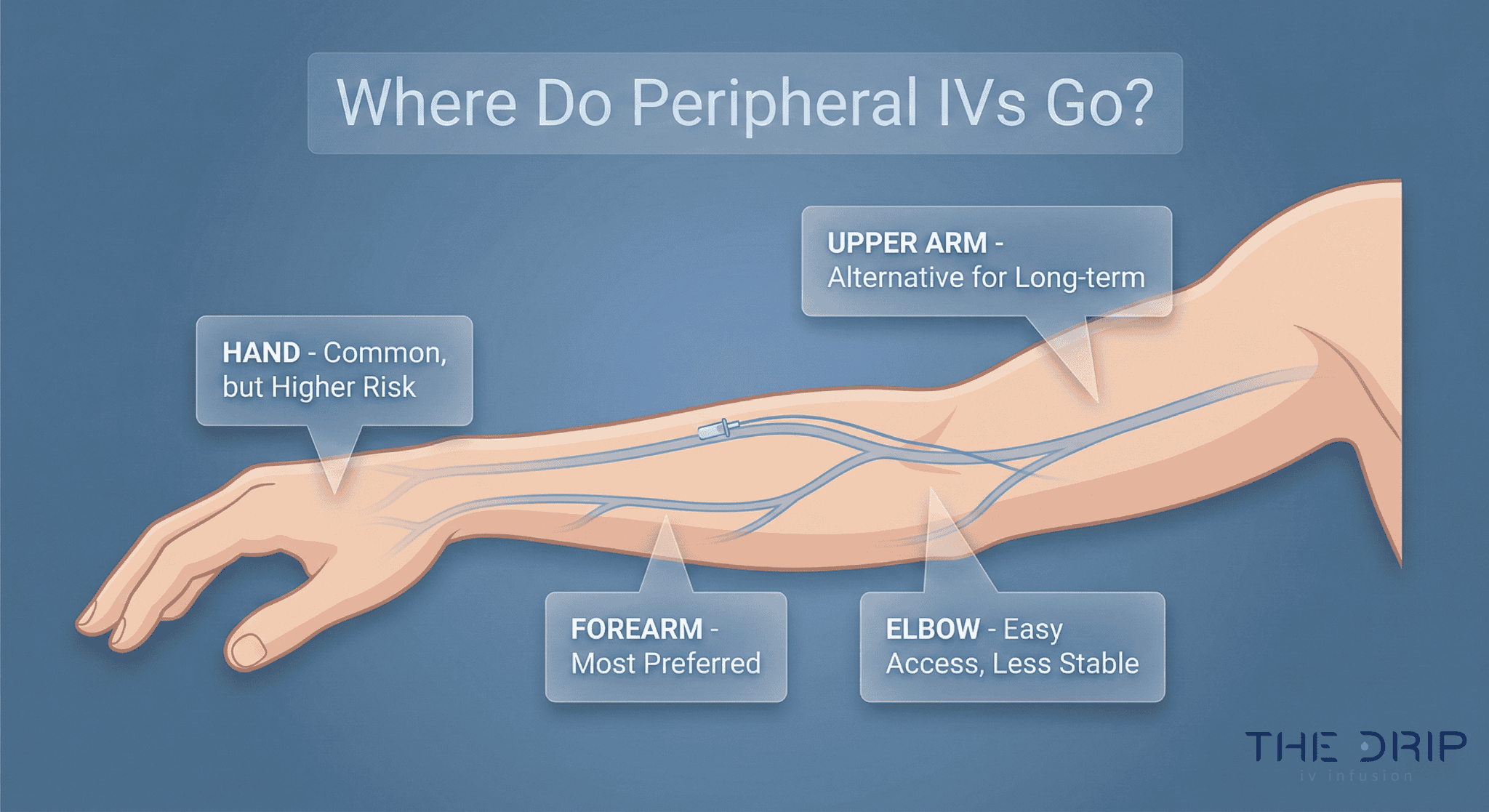Experiencing a lack of magnesium in your body may bring many discomforts and health conditions your way. You could find yourself battling many health issues if you don’t take any action to solve this problem. At this time, the best solution might be to consider magnesium IV therapy.
Some of the most common symptoms of Mg deficiency you may experience are fragility, nausea, and bone density. Fortunately for us, countless solutions and treatments are available thanks to innovative medicine. Patients might gain outstanding relief from magnesium drip in hospital or at home.
So, that’s why we dedicate this article to inform you about what is magnesium IV used for and its benefits. Learn more about the symptoms of magnesium deficiency and why they occur. We’ll also give you an insight into magnesium IV drips side effects so you can be prepared for everything.
Continue reading to learn how magnesium Drip IV therapy may be helpful to you.

Source:shutterstock.com / Photo Contributor: Pixel-Shot
The Role of Magnesium in the Body
Magnesium is the fourth most abundant mineral that’s responsible for multiple proper functions of the body. This mineral is among the key elements that have many benefits for your overall health. It’s a necessary factor and a cofactor in more than 300 enzyme systems in your body.
So it’s crucial to maintain a healthy level of magnesium since this mineral is required for many biochemical reactions in the body.
One of the essential jobs magnesium does for our bodies includes maintaining healthy brain function. It also plays a role in cardio-protective performance by maintaining a steady, regular heartbeat. This mineral also supports bone formation, muscle function, and nerve transmission.
Here are some of the benefits you may get from this outstanding mineral:
Should maintain healthy brain functions
Magnesium is a necessary mineral that helps relay signals to your brain and body. In recent research, magnesium has been shown to provide significant effects on cognitive performance in the brain.
Furthermore, magnesium acts as a gatekeeper to your NMDA receptors. These receptors are important for brain functions such as brain development, learning, and memory. Typically, Mg can be found inside these receptors, preventing them from getting triggered by weak signals.
If you’re low on magnesium, these receptors are more prone to unnecessary stimulation. This means that magnesium deficiency may cause decreased cellular messaging and brain inflammation.
May support for a healthy heart
Magnesium has a key role in intracardiac conduction, modulating neuronal excitation and myocardial contraction in the cardiovascular system. It does so by regulating a number of ion transporters, such as potassium and calcium channels.
A study found that those with proper magnesium levels have a 44% lower chance of heart failure. The movement of magnesium and calcium across your heart cells provides a stable and healthy heartbeat. When low on Mg, you may end up with rapid heartbeat and overstimulation.
The enzyme that generates impulses, known as the “sodium-potassium pump”, requires magnesium for proper function. So, make sure you consult with health providers if you’re experiencing the mentioned symptoms.

Source: shutterstock.com / Photo Contributor: Natali _ Mis
May help with bone formation
When it comes to bone formation, magnesium is a vital mineral for healthy, firm, and strong bone structure. Healthy bodies contain approximately 25 grams of Mg, while 50% to 60% of this amount is present in the bones. The rest of this mineral is stored in soft tissue and blood serum.
Proper levels of magnesium in your body, along with calcium, promote many magnesium IV benefits for overall bone health. This mineral’s role is to mobilize mesenchymal stem cells. This means that magnesium supports stem cells turning into bone-forming cells, then deposits bone cells into the bone matrix, thus forming solid and firm bones.
Magnesium deficiency might affect your bones directly and indirectly. It may reduce bone stiffness or cause inflammation/oxidative stress and subsequent bone loss.
A source of energy production
Adenosine triphosphate (ATP) is a molecule responsible for producing energy for metabolic processes. The ATP exists primarily as a complex with magnesium. This means that this molecule must bind with Mg in order to function.
What Causes Magnesium Deficiency
Magnesium deficiency is a condition when your body lacks the required amount of Mg levels for a healthy body. In the medical world, this condition is better known as “hypomagnesemia.”
Magnesium deficiency is quite rare in healthy adults, but there are a few reasons why it might happen. Here are some causes that result in magnesium deficiency:
Alcohol use
Poor diet
Burns affecting larger areas of the body
Chronic diarrhea
Kidney disorders
Hyperaldosteronism (a condition in which the adrenal gland produces too much aldosterone)
Pancreatitis (inflammation and swelling of the pancreas)
Extensive sweating and urination
Magnesium deficiency can only be diagnosed by your health provider. If you’re worried you might have this condition, you may go through a blood or urine test. If your tests come back with Mg deficiency, your doctor will most likely advise taking magnesium supplements.
However, there are countless other ways people might treat Mg deficiency. In order to prevent such an issue, it’s important to create a healthy diet. A balanced diet containing foods that are rich in magnesium might make a whole difference.
What are the symptoms of magnesium deficiency
As we learned, magnesium is an essential mineral for proper body functions. Bad diet habits or health conditions might reduce their levels. They can all put extra stress on the body, thus depleting Mg levels.
Severe magnesium deficiency is extremely rare. However, lacking this mineral may cause some long-term health issues. In severe cases, it might affect the following:
Bone density
Studies have shown that in severe cases of magnesium deficiency, it may cause a reduction in the number and volume of trabeculae. The effects of this are an uncoupling bone formation process and decreased bone mineral content. This might lead to severe bone fragility.
Magnesium deficiency is also linked to osteoporosis, a condition where the mineral density and bone mass decrease. Thus, also leading to reduced bone strength and risk of fractures.

Source: shutterstock.com / Photo Contributor: April stock
Brain, nerve, and muscle function
According to a 2019 research study, magnesium deficiency may affect neurological disorders. This includes Alzheimer’s disease, Parkinson’s disease, stroke, and migraine. Furthermore, its effects on the nerves and nervous system may add to cerebral vasospasm.
Lack of magnesium is more likely to lead to unnecessary muscular excitation hyperfunction. In severe cases, this might cause calcifications, seizures, hypertension, osteoporosis, tachycardia, migraines or headaches, and convulsion.
Magnesium Recommended Dosage Chart
| Life stage, age, and sex | Recommended dosage |
|---|---|
| Infants to 6 months | 30 mg |
| Infants 7-12 months | 75 mg |
| Children 1-3 years | 80 mg |
| Children 4-8 years | 130 mg |
| Children 9-13 years | 240 mg |
| Girl teens 14-18 years | 360 mg |
| Boy teens 14-18 years | 410 mg |
| Men | 400-420 mg |
| Women | 310-320 mg |
| Pregnant teens | 400 mg |
| Pregnant women | 350-360 mg |
| Breast-feeding teens | 360 mg |
| Breast-feeding women | 310-320 mg |
Magnesium IV Therapy
IV therapy, or intravenous therapy, has been practiced in medicine for decades. This method is the fastest way you can administrate nutrients and vitamins to the body through blood circulation. Since it bypasses the digestive system and aims straight for the organs, the infusion is much more effective with maximum absorption rates.
IV therapy for magnesium deficiency is a clinically proven treatment that may help people with various types of conditions. Even though you have several options on how to get this mineral in your body, IV therapy is one of the most efficient and safest ways.
There is a magnesium infusion protocol prepared by scientists who did experimental observations of magnesium dosage for different conditions.
One of the most used IV therapy is The Classic Myers cocktail.
This IV treatment therapy cocktail consists of several crucial supplements and minerals essential for your body, all in one treatment. The common ingredients include vitamin C, B12, B-complex, zinc, glutathione, magnesium, and fluids.
Can you give magnesium IV yourself regularly? Regular IV magnesium treatments may help reduce any symptoms you can take from Mg deficiency. If you’re feeling fatigued and can’t go out for treatment, a mobile IV therapy team comes to your house. This option allows you to take therapy at your convenience, with specialists treating you.
Mobile IV therapy is available almost everywhere, providing safe and high-quality treatments.
What is magnesium IV used for
Magnesium IV is used for a variety of health conditions. These treatments are practiced in hospitals and outpatient infusion clinics. The infusions must be supervised by medical professionals.
Many conditions and diseases caused by magnesium deficiency might be treated and reduced thanks to IV therapy.
Here are some of the most common health conditions magnesium IV therapy may help with:
Asthma
Asthma is a chronic respiratory condition that affects a good part of the population. Its symptoms include:
Coughing
Wheezing
Shortness of breath
Increased respiratory rate
Researchers studied the effects magnesium IV treatments have on asthma. In one of the most recent studies, they’ve concluded that administering Mg intravenous may help manage signs and asthma attacks.
Magnesium may help relax constricted bronchioles during an asthma exacerbation. Therefore, the magnesium IV treatment should be both very effective and fast-acting.
Anxiety
Anxiety is one of the most common mental health conditions. It has been estimated to affect a total of 31.1% of the US adult population.
Recent studies have declared that magnesium may help with the effects of anxiety. This mineral is associated with subjective anxiety, and you might be able to help reduce it through magnesium IV therapy.
However, the evidence of magnesium’s effects on anxiety is primarily positive but requires further research.

Source: shutterstock.com / Photo Contributor: Ataka
Cardiac arrhythmias
Magnesium deficiency has been known to cause significant stress on the muscular system. The most crucial muscle it may affect is the heart. Mg has an intricate connection with the heart’s electrical stability.
Magnesium intravenous therapy has been used to treat many types of cardiac arrhythmias. This treatment has been shown to have positive effects on the cardiovascular function. It results in the relaxation of the dilated blood vessels and heart.
Continuous IV magnesium treatments might provide efficient heart functions and the beat rhythm.
Chronic pain
Magnesium plays a huge role in your body’s transmitting nerve signals. Thus, it should prevent central sensitization and attenuation of established pain hypersensitivity.
IV magnesium therapy has been used to alleviate chronic pain. Patients with migraines, fibromyalgia, or other conditions might be advised to receive an infusion of magnesium for a faster recovery.
Chronic fatigue syndrome
Chronic fatigue syndrome is a disease that can affect any type of body system. Some symptoms of this condition include:
Fatigue
Sore throat
Headaches
Muscle and joint pain
Brain fog
Reduced concentration
Some reported studies suggest that magnesium IV treatments may help with chronic fatigue syndrome.
High blood pressure
Magnesium is a potent vasodilator, meaning that Mg infusion might help with severely high blood pressure. It is commonly used in the ER and by mothers who have just given birth.
IV magnesium has also been proven to reduce blood pressure in patients with insulin resistance, prediabetes, or other non-communicable chronic diseases.
What Are Magnesium IV Drip Side Effects
Just like any other medication or IV therapy, the magnesium infusion may also have some potential side effects. However, it’s important to be honest with your health provider to reduce the risks.
Make sure you mention any conditions or health issues you’re diagnosed with. This might include:
Heart disease
History of irregular heartbeat
Kidney disease
Allergic reactions (magnesium sulfate, medications, foods, dyes, or preservatives)
Expecting a child or trying to get pregnant
Breastfeeding
IV magnesium treatment is the safest and most effective way to get this mineral in your body. Even though specialists and professionals do their best to keep you away from experiencing any side effects and reduce them to their minimum, they still may happen. Some of the side effects you should report to your professional health providers include:
Allergic reactions – hives, swelling of the face, lips, tongue, or throat, skin rash, and itching
Low blood pressure – blurry vision, dizziness, feeling faint or lightheaded
High magnesium levels – redness, confusion, drowsiness, facial flushing, sweating, muscle weakness, trouble breathing, fast or irregular heartbeat
Some side effects you may experience that aren’t worrisome include the following:
Headache
Nausea
Disclaimer: This list might not include and describe every side effect people could possibly experience. Make sure you call and consult with health providers about any side effects you’re worried about to ensure your safety.

Source: shutterstock.com / Photo Contributor: redcarpett
Conclusion
In conclusion, anyone may experience magnesium deficiency. This condition comes with a number of symptoms that aren’t pleasant to the people experiencing them. However, there are countless solutions you can choose to go through this condition.
Some of the discomforts and Mg deficiency symptoms you might experience are nausea, fragility, weakness, and muscle deficiency. Luckily, you now know an excellent way you can deal with this kind of issue.
Magnesium IV therapy is one of the easiest and quickest ways to get nutrients and vitamins in your body. After trying these treatments, you may instantly experience changes and results.
Hopefully, this article has provided you with insightful information on everything you need to know about magnesium intravenous therapy. Remember, before you take any action, it’s strongly advised to consult with a professional or healthcare provider.




